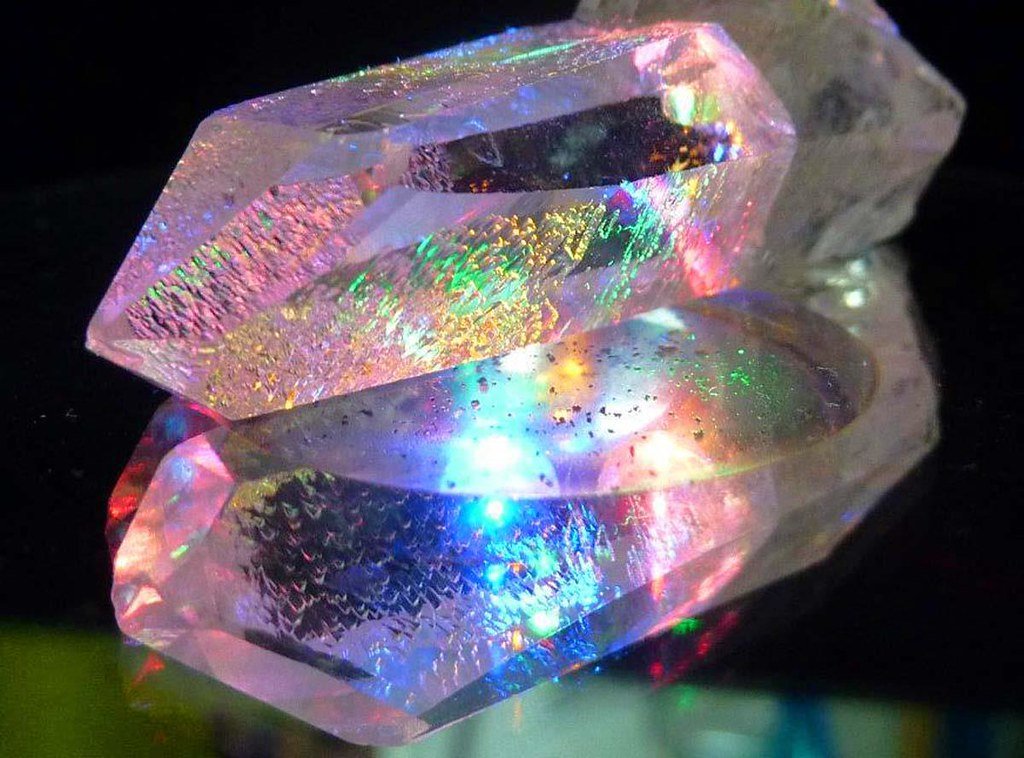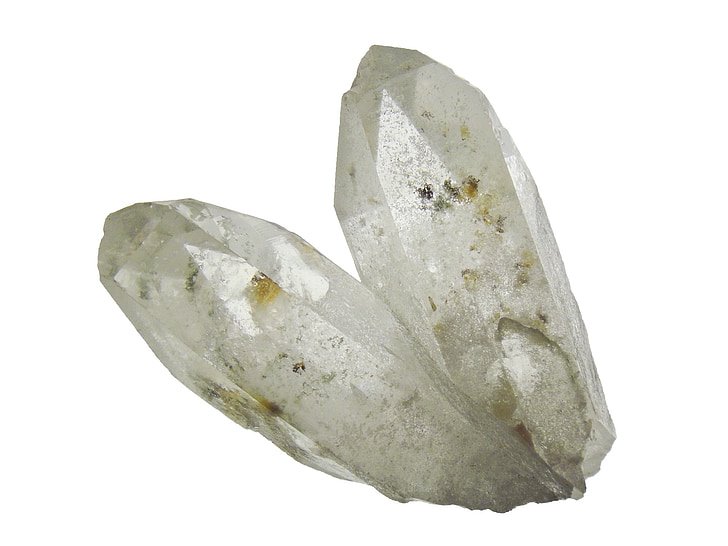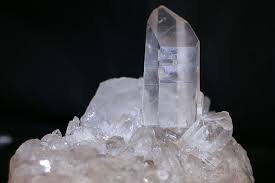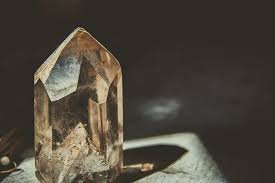


As the second most abundant mineral in earth’s crust, quartz has long been known and adored by man for its wide array of colors and patterns. Quartz has remained a collector’s favorite for centuries because it not only comes in a multitude of colors and patterns, it can also contain an incredible array of inclusions of other minerals.
All forms of Quartz are used as gemstones, and they are all affordable. They are cut into various gemstone cuts and cabochons, and used in all forms of jewelry. Lesser quality stones are often tumbled for use in bracelets, necklaces, and as costume jewelery. Large spheres and carvings are also cut from all the Quartz forms. Due to its abundance and lack of luster, Rock Crystal is not commonly cut into gemstones, although some very large spheres and sculptures are carved from it. Small crystals of Rock Crystal are sometime worn as pendants, sometimes being polished and smoothed, and sometimes in their entirely natural crystal form.

Color: clear, colorless
Crystal structure: trigonal
Luster: vitreous – waxy to dull when massive
Transparency: transparent to nearly opaque
Refractive index: 1.544-1.553
Density: 2.65
Cleavage: indistinct
Normal care for untreated stones. Avoid jewelers torch for amethyst, citrine and prasiolite. Coated stones use gentle care. Avoid abrasions. Chipping may reveal natural color. Cannot be re-cut or re-polished. Avoid heat, temperature changes, steaming, chemicals, ultrasonic cleaners, and re-polishing in dyed or assembled stones.

Clear quartz isn’t simply “colorless.” Its luminous glow can capture light like a glassy, placid pond. With pure and radiant grace, clear quartz stones make the world that much brighter and more colorful.
When influenced by mineral impurities during formation, quartz’s naturally clear and glossy coat becomes infused with a range of colors. This transforms clear quartz into amethyst, chalcedony, onyx, jasper, etc.
Cutting is the process of shaping freshly mined crystals into polished and market-ready gemstones.
Thanks to its strong shell, clear quartz can be fashioned into a variety of shapes. You’ll often find clear quartz stones in round, oval, marquise, square, pear, and princess cuts. When it comes to beads, popular clear quartz shapes include round, oval, and baroque.

Clarity and inclusions go hand in hand. Inclusions are gas, dust, and liquid particles formed from mineral impurities during crystallization. Gemstones that lack visible inclusions are classified as “eye-clean” and generally have a higher value.
Although they’re abundant, most clear quartz stones have visible inclusions. Finding completely eye-clean clear quartz is quite difficult. If you do come across one, you’ll likely be shelling out good money for it!
For many folks, bigger is often better. Fortunately, clear quartz stones come in large sizes!
According to a quick online search, clear quartz jewelry typically weighs three to six carats. For clear quartz beads, sizes span from two to eight millimeters. Meanwhile, most gemstones can’t even exceed two carats.
Looking for even bigger gemstones? Consider shopping for clear quartz ornamental stones – these usually weigh 12-14 carats!